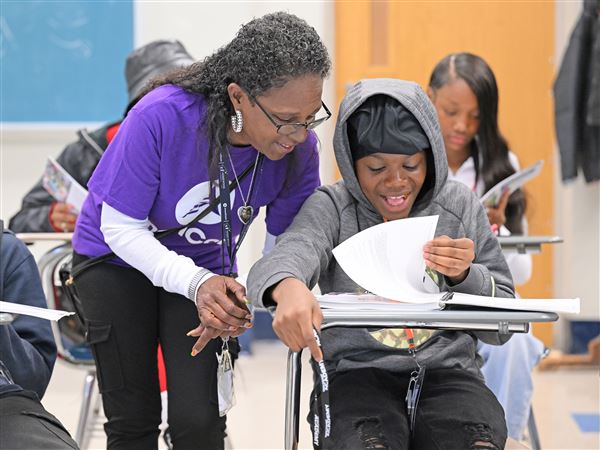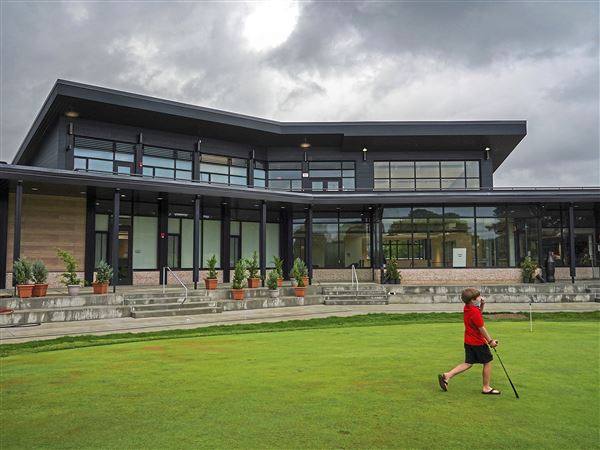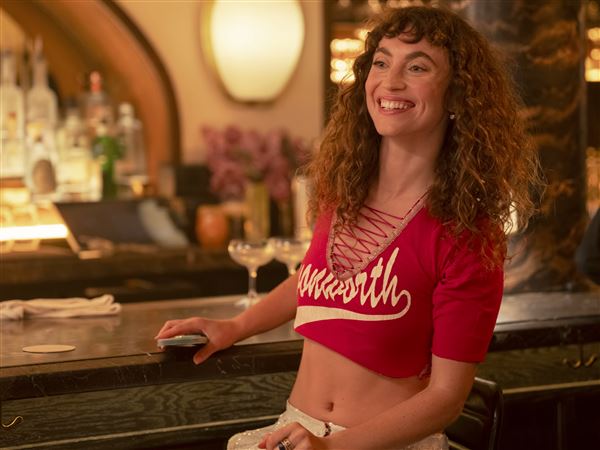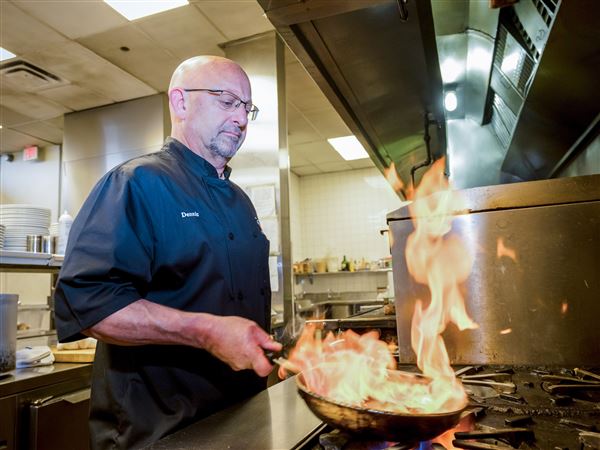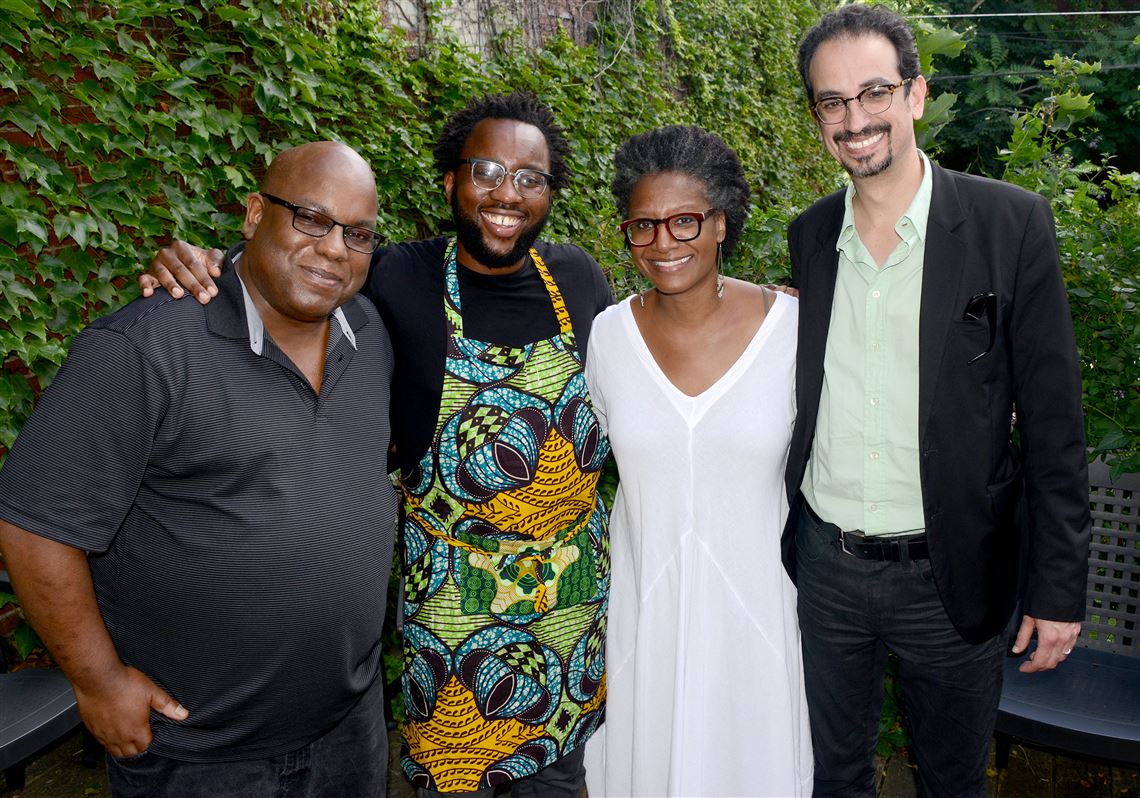Thursday evening was a special night at the Imagebox in Garfield as a group of community activists, nonprofit leaders, free-thinkers and dreamers came together to discuss the racial issues and tensions plaguing American culture. Tunde Wey, a 32-year-old Nigerian immigrant, chef and writer, who is criss-crossing the country with his pop-up dinners, cooked up some spicy Nigerian food and conversation.
“Tonight is supposed to be impolite and uncomfortable,” he said to the group, which included Grant and Aradhna Oliphant, Veronica Corpuz and Harris Ferris.
Mr. Wey, who is based in Detroit and has been featured on NPR and in The New York Times, Vogue and Oxford American, discussed political and cultural issues while sharing foods and ideas. He was invited to Pittsburgh by event producer Kilolo Luckett. “I met him in New Orleans and instantly felt this connection. I knew Pittsburgh needed to know him, and we needed to have this conversation.”
Guests filled their plates with dodo and ayamase (fried plantains, green bell peppers with locust bean sauce), oven-fried fowl, jollof frejon (rice stewed in spiced tomato sauce and black bean) and puff puff (deep fried dough served with grapefruit) before settling in for conversation. “We are eating the food wrong,” began Mr. Wey. “I didn’t label each dish because this creates a more vulnerable state, as it is detached from its reference, making it more purposeful in meaning in this setting.” He added, “My direct history isn’t connected to slavery, and in that way I come from privilege, detached from how blackness is experienced here.”
Pittsburgh Post Gazette columnist Tony Norman, who co-hosted the event, introduced topics surrounding the recent Dallas shooting, showcasing concern for police outsourcing brutality through robots. “At the heart of all of this is a fundamental absurdity for control,” he said. Many guests voiced their thoughts and frustrations about issues surrounding race, privilege, colorism and colonialism. The central heart of the conversation was focused on empathy and learning to listen to someone’s perspective that hasn’t had your experience and understanding that their voice can teach you something you maybe didn’t know. The group felt that lack of societal empathy and went silent, as though a wave of hopelessness had washed over them.
“We cannot fall into despair,” said Mr. Norman. “You have to be in the moment, recognize that there are challenges everywhere that you look, but our collective efforts can begin to work to eliminate biases.” Added Mr. Wey, “Investing in black and brown folks is for everyone’s benefit.”
#SEEN: John and Tracy Mahood, John Barbera, Njaimeh Njie, Pav Gee and Liana Maneese, Fran Flaherty and Beatrice Vassar who stated, “All this distrust between people is still working to divide us and in order to overcome these issues, we must learn to work together.”
First Published: July 18, 2016, 4:00 a.m.

